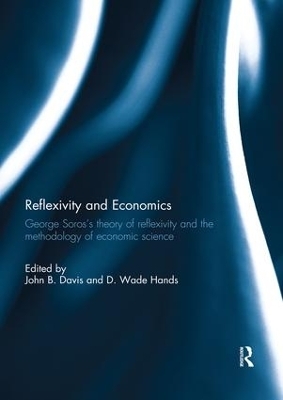
Reflexivity and Economics
Routledge (Verlag)
978-0-367-03007-0 (ISBN)
Although various versions of reflexivity have long been discussed, in recent years George Soros has been particularly effective in bringing ideas about reflexivity to the attention of the economic and financial communities. In a series of writings he has systematically argued that reflexivity is not only an important aspect of economic life, it is an aspect that is neglected in most mainstream theorizing; and in addition, that the neglect of reflexivity has been responsible for the failure of economists to predict, explain, or offer a solution for events such as the recent financial crisis.
Soros’ ideas about reflexivity have important methodological significance, and his chapter in this book summarizes and clarifies his arguments. His contribution is joined by those of thirteen scholars from a wide range of relevant fields, who provide a commentary on the idea of reflexivity in economics. This book was originally published as a special issue of The Journal of Economic Methodology.
John B. Davis is Professor of Economics at Marquette University, Milwaukee, WI, USA, and Professor of Economics at the University of Amsterdam, The Netherlands. He is the author of Keynes’s Philosophical Development (1994), The Theory of the Individual in Economics (2003), and Individuals and Identity in Economics (2011), and co-author of Economic Methodology: Understanding Economics as a Science (2010, with Marcel Boumans). He is co-editor of the Journal of Economic Methodology, and the Elgar Companion to Recent Economic Methodology (2011, with Wade Hands). D. Wade Hands is Distinguished Professor of Economics at the University of Puget Sound, WA, USA. He has written on a wide range of topics in the history of economic thought and economic methodology. He is co-editor of the Journal of Economic Methodology, and the author of Reflection Without Rules: Economic Methodology and Contemporary Science Theory (2001). He is co-editor of Agreement on Demand: Consumer Choice Theory in the 20th Century (2006, with Philip Mirowski) and The Elgar Companion to Recent Economic Methodology (2011, with John B. Davis).
Introduction – Reflexivity and economics: George Soros’s theory of reflexivity and the methodology of economic science 1. Fallibility, reflexivity, and the human uncertainty principle 2. Reflexivity, complexity, and the nature of social science 3. Reflexivity unpacked: performativity, uncertainty and analytical monocultures 4. George Soros: Hayekian? 5. Reflections on Soros: Mach, Quine, Arthur and far-from-equilibrium dynamics 6. Soros’s reflexivity concept in a complex world: Cauchy distributions, rational expectations, and rational addiction 7. Hypotheses non fingo: Problems with the scientific method in economics 8. Fallibility in formal macroeconomics and finance theory 9. Reflexivity and equilibria 10. Reflexivity, expectations feedback and almost self-fulfilling equilibria: economic theory, empirical evidence and laboratory experiments 11. Soros and Popper: on fallibility, reflexivity, and the unity of method 12. Reflexivity, uncertainty and the unity of science 13. On the role of reflexivity in economic analysis 14. Broader scopes of the reflexivity principle in the economy
| Erscheinungsdatum | 04.12.2018 |
|---|---|
| Verlagsort | London |
| Sprache | englisch |
| Maße | 174 x 246 mm |
| Gewicht | 453 g |
| Themenwelt | Wirtschaft ► Allgemeines / Lexika |
| Wirtschaft ► Volkswirtschaftslehre ► Mikroökonomie | |
| ISBN-10 | 0-367-03007-1 / 0367030071 |
| ISBN-13 | 978-0-367-03007-0 / 9780367030070 |
| Zustand | Neuware |
| Haben Sie eine Frage zum Produkt? |
aus dem Bereich


